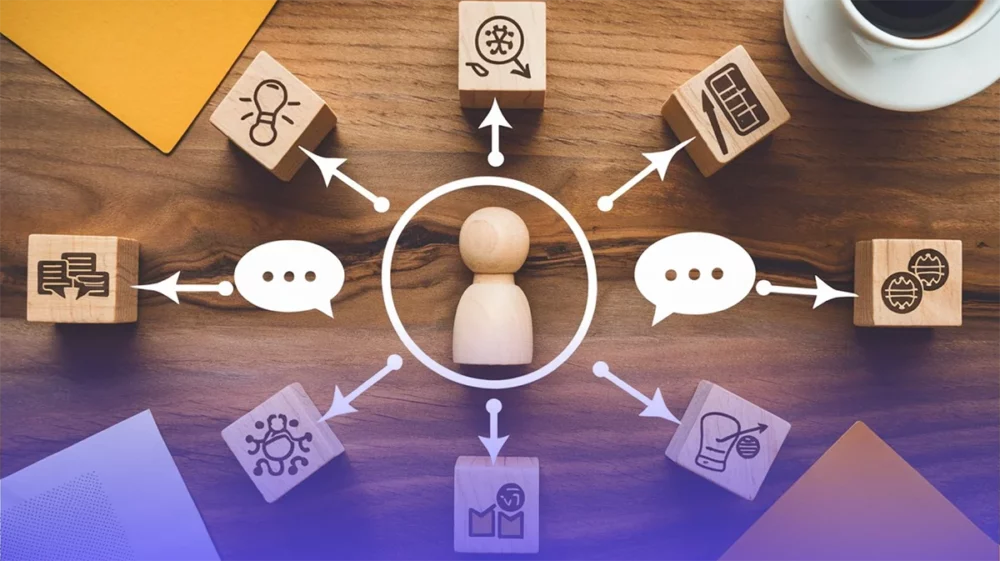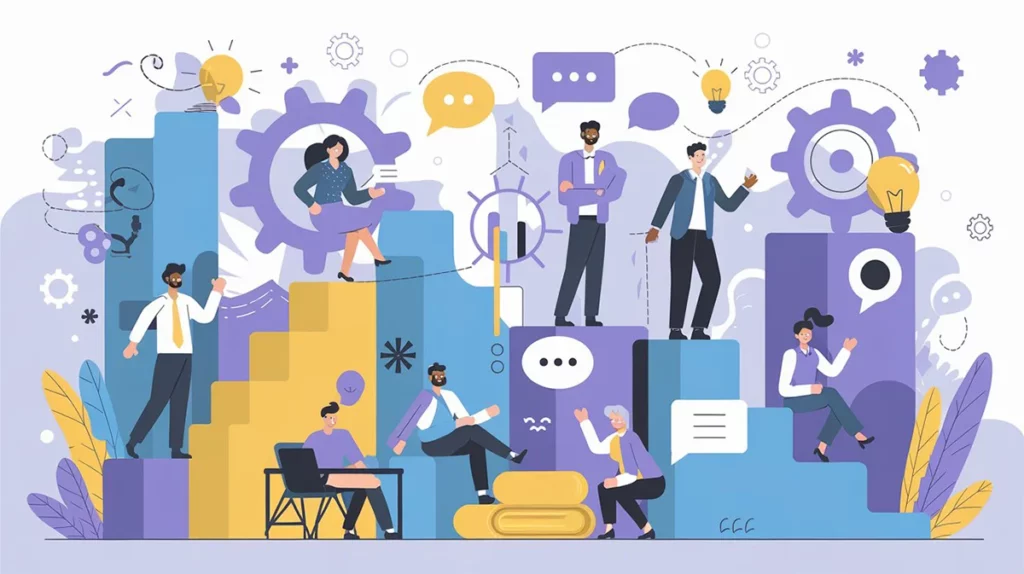The Importance of Soft Skills in the Workplace

In the workplace, it is no longer enough to have only technical knowledge (hard skills); it is also essential to consider soft skills, which include effective communication, empathy, negotiation skills, conflict resolution, and more. Employers monitor soft skills during job interviews, performance reviews, ongoing development, and career progression. Soft skills management is a key part of human resources management because it helps identify, track, and develop these skills in employees.
What are Soft Skills and Why are They Important?
As mentioned above, soft skills are abilities related to communication, collaboration, and behavior in various situations. While hard skills are measurable and can be acquired through training and certifications, soft skills develop through mentoring, coaching, training, and practice.
Their significance is crucial because they are part of everyday interaction and collaboration, not just in the workplace. None of us functions as an isolated unit – we are part of various teams and social groups where our soft skills are displayed daily. Every company has a set of values or principles that our soft skills either align with or deviate from. Based on this, companies choose their employees and are willing to invest time and money in their development.
Examples of Key Soft Skills
Some of the most important soft skills include:
- Communication – the ability to effectively express ideas and also listen to others. Communication includes giving and receiving feedback efficiently.
- Teamwork – the ability to work with others towards common goals.
- Empathy – understanding the emotions and needs of others.
- Problem-solving – analytical and creative thinking when finding solutions.
- Leadership skills – the ability to lead, delegate, and motivate others.
- Time management – effective management of time and prioritization of tasks.
- Adaptability – the ability to respond to changes and quickly learn new things.
- Stress resilience – managing pressure and stressful situations.
- Critical thinking – objectively evaluating information and making decisions based on facts.
- Presentation skills – the ability to present information clearly and persuasively.
No single soft skill stands in isolation; they are always interconnected. For example, in communication, there is a blend with a certain level of empathy.
Connecting Company Values and Measuring
Corporate values and soft skills are closely related. If an organization defines certain values, it should be able to track whether these values are truly reflected in the behavior of employees. If an employee lacks soft skills aligned with these values, it is worth considering whether to support and develop them or to part ways if they do not fulfill any of them.
How Do Values Relate to Soft Skills?
Corporate values often express desired behaviors and attitudes, which most often manifest through soft skills. Examples of connections:
- Value: Transparency and open communication – relates to the ability to communicate effectively, give and receive feedback.
- Value: Collaboration and teamwork – requires empathy, active listening, and the ability to resolve conflicts.
- Value: Innovation and continuous improvement – depends on creativity, adaptability, and a proactive approach.
- Value: Customer orientation – reflected in skills like emotional intelligence and problem-solving.
Measuring and Evaluating Soft Skills
Measuring soft skills is not as easy as assessing hard skills (e.g., knowledge of Excel, programming, or a foreign language), but there are methods to gain a more objective view. The process that involves identifying, tracking, and developing skills (both soft and hard) of employees is called skills management. Employers often use modern tools to help identify strengths and areas for development, thus facilitating decisions about training and career growth. These modern tools provide detailed skill analysis and recommend specific educational programs, such as training, workshops, or mentoring.
The first step is identifying the required hard skills and soft skills. For employee evaluation, it is essential to regularly measure their abilities and skills using patterns and evaluation examples.
360° Feedback
- Employees receive feedback from colleagues, supervisors, and subordinates.
- Specific behaviors are assessed (e.g., “How often does the person actively listen to colleagues, supervisors, and subordinates?”).
Behavioral Assessment in Performance Management
- This is a method of evaluating employees that focuses not only on the results achieved but also on how these results were attained. It monitors employees’ behavior in the workplace and their soft skills, such as communication, teamwork, problem-solving, or leadership.
Psychodiagnostic Tests
- Tests focused on emotional intelligence, communication, adaptability, or leadership are used.
- Example: An EQ (Emotional Intelligence) test can reveal the ability to work with emotions in a team.
Situational and Case Studies (Assessment and Development Centers)
- Employees solve model situations in front of multiple assessors.
- For example, during collaboration, it is observed how individuals communicate and make decisions in a team.
Examples of Soft Skills Evaluation Questions
- Communication: How effectively does this employee communicate with colleagues and supervisors? (Rate on a scale of 1-5)
- Teamwork: How well does the employee collaborate in a team? (1-5)
- Problem-solving: How effectively does the employee solve problems and challenges? (1-5)
When creating questionnaires, we recommend combining scales with open-ended questions because each area includes many subareas. For example: What areas should the employee develop to strengthen teamwork?
Alternatively, focus on teamwork as a whole and break down the question into sub-questions. For example, communication in the team, planning, organization, and other aspects. This allows you to focus on specific strengths and areas for development of the individual. Follow the same approach for other questions.
How to Effectively Connect Values and Soft Skills in Practice?
- Assign specific soft skills to each value that supports it. For example: The value “Collaboration and teamwork” requires empathy, active listening, and the ability to resolve conflicts.
- Integrate values into HR processes – recruitment, performance evaluation, and training should reflect corporate values and defined soft skills.
- Support the development of soft skills – training, mentoring, and coaching can help employees develop soft skills in alignment with company values.
- Regularly evaluate and adjust – measuring soft skills should be dynamic and reflect the current needs of the organization.
Training and Programs for Developing Soft Skills
There are various methods for developing soft skills, such as soft skills courses, training, mentoring, and coaching. Companies most often request training focused on specific areas, such as time management, communication training, or teamwork. Many companies on the market offer customized training to meet your needs. Books focused on soft skills can be a useful resource for self-study and self-reflection.
Conclusion
Effective skills management supports the growth of both the organization and employees, increasing performance and motivation. Investment in modern evaluation tools helps create a transparent environment where people feel valued and supported. Employees’ soft skills are essential for ensuring that company values are not just words on paper but are genuinely reflected in practice. Their consistent development strengthens corporate culture and improves teamwork.





